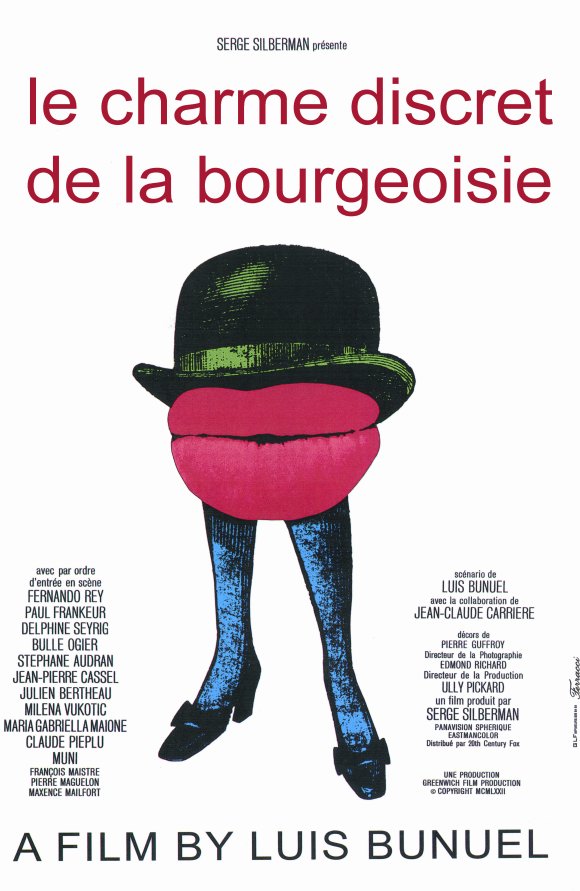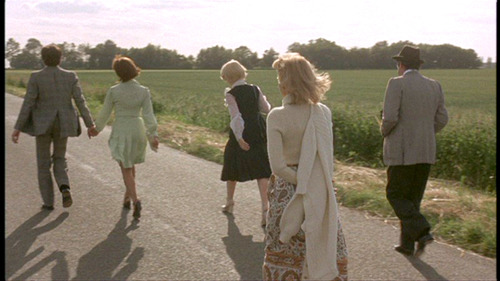Luis Bunuel's The Discreet Charm of the Bourgeoisie holds the promise of a "proper" (classical) narrative throughout its length but doggedly fails in keeping it. Here is a film that pretends to head for the centre, all the while running off into tangents. It is almost as if Bunuel is trying his best to control his surreal urges and make a conventional, conformist narrative feature; but yields repeatedly to his playful, naughty side.
Gone is the sort of openly rebellious, distinctly surreal imagery that populated his early work (Un Chien Andalou or L'Age D'Or). There is an air of naturalism and realism in the proceedings: hints that this film may follow the cause-and-effect logic of classical narrative. We see one of the characters - a high-ranking diplomat - smuggle cocaine in his luggage. A lady promises a priest that she'll narrate the story of her faith to him. Bunuel throws around these nuggets with exquisite care. He has the diplomat explain in detail how he managed to smuggle the stuff in. But there's no follow-up. It appears the director has lost interest in the sort of conventional film his handiwork is headed towards, so he turns his attention to another little incident, follows the narrative thread for a while, and diverts his attention yet again.
The running gag of the film is that a group of high-class socialites sit down to dinner several times but never actually finish it. Bunuel's own little joke is luring his viewers into believing that Discreet Charm is a conventional narrative. Like his protagonists, we never get finished with the "story" - our dinner. It eludes us before a normative conclusion can be reached.
Discreet Charm is as much a critique of complacent, disengaged entertainment (the sort that Hollywood has always readily served up) as it is a hilarious parody of bourgeois manners (with some typical Bunuel targets thrown in for good measure - bureaucratic, military and religious). At a restaurant, the three ladies of this film ask for all sorts of beverages - tea, coffee, water - but the waiter informs them that none is available. Nothing in Bunuel's film is readymade for easy consumption.
One sequence in the film is shown thrice, being the last as well. It has the motley group of socialites walking endlessly through an empty field. Bunuel's parting statement is cheerfully nihilistic - coming from nowhere, going nowhere. It is a wonder a film so mischievous and rebellious in its opposition to Hollywood's values of filmmaking won an Academy Award for Best Foreign Film.


